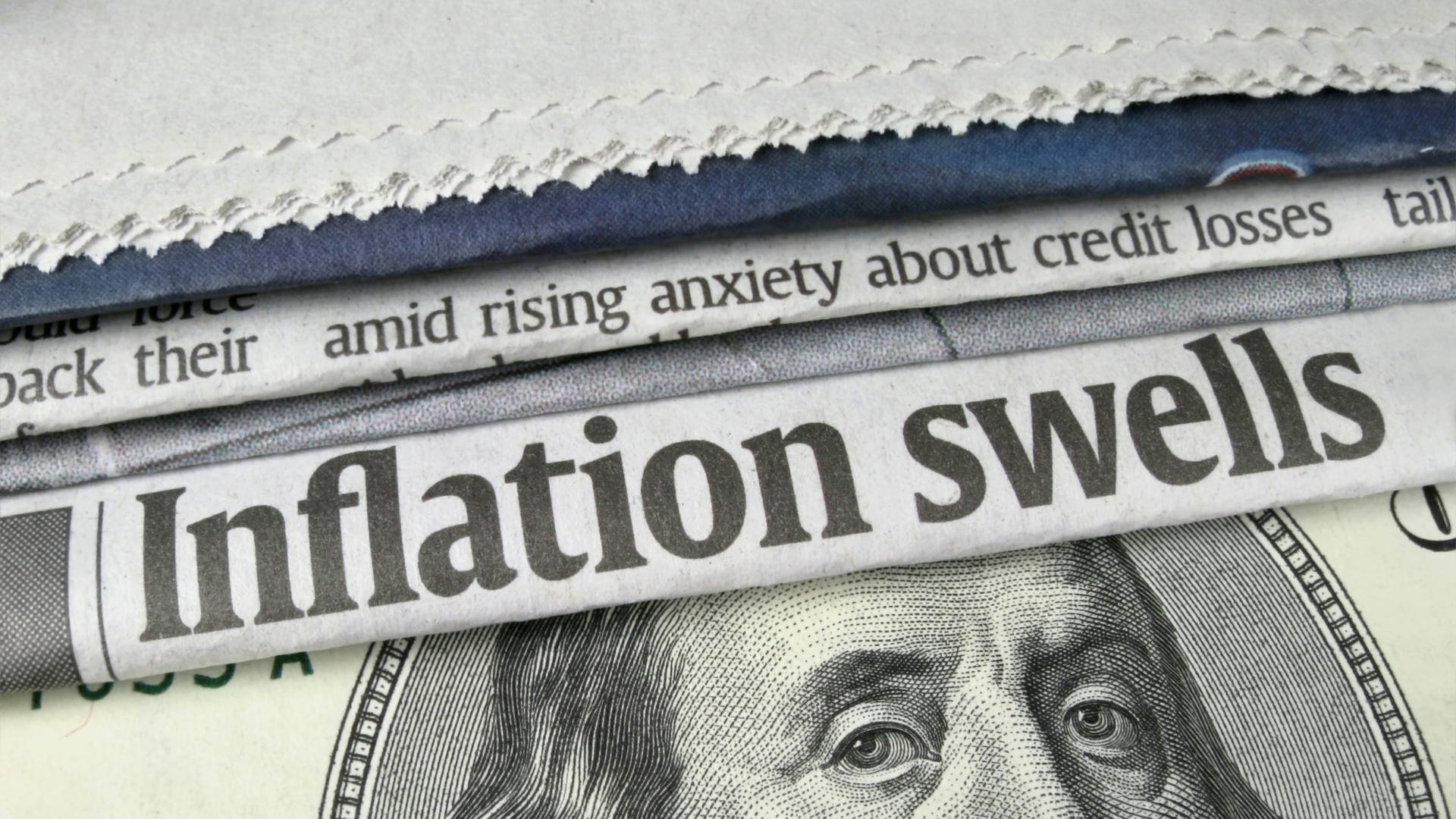
The Rising Costs of Everything: Insights Around Current and Future Inflation
August 24, 2022
Intellicast S5E25 – Connecting Ecology and Market Research with Erin Sowell of Thoughtful Research
August 29, 2022It seems like a new celebrity, influencer, or politician is “cancelled” every week. For some of us, it begs the question, what did they do to get cancelled? And for others, what does cancelled even mean? In our latest round of research-on-research we asked respondents about their support and understanding of cancel culture.
Overall, a majority of people do not support cancel culture. In fact, people are 44% more likely to not support cancel culture than to support it. 38% of people do not know what cancel culture is.
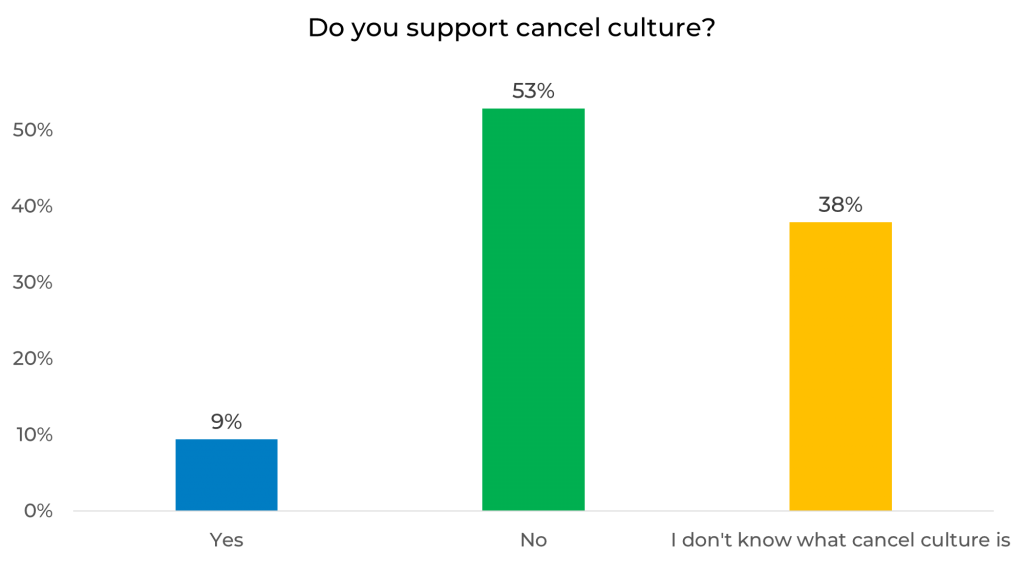
Gender
Following the overall trend, the support for cancel culture is low among both males and females (10% or less.) Males are 16% more likely to say they do not support cancel culture than females. Females are 17% less likely to know what cancel culture is than males.
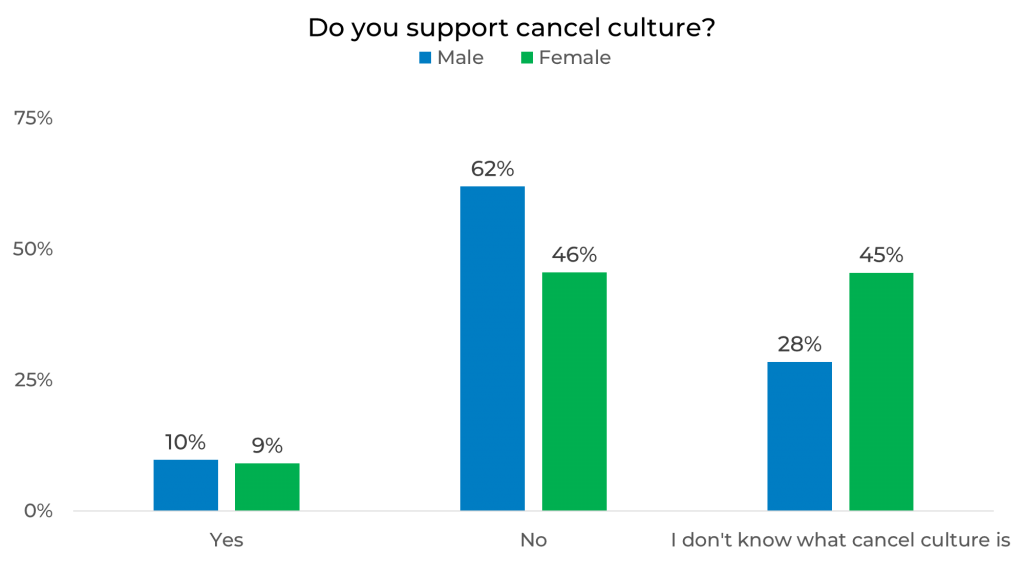
Political Affiliation
We looked at support of cancel culture by political affiliation and found that Democrats are 12% more likely to support cancel culture than Republicans, but overall, the support for cancel culture is less than 20% across both parties. Democrats are 7% less likely than Republicans to know what cancel culture is.
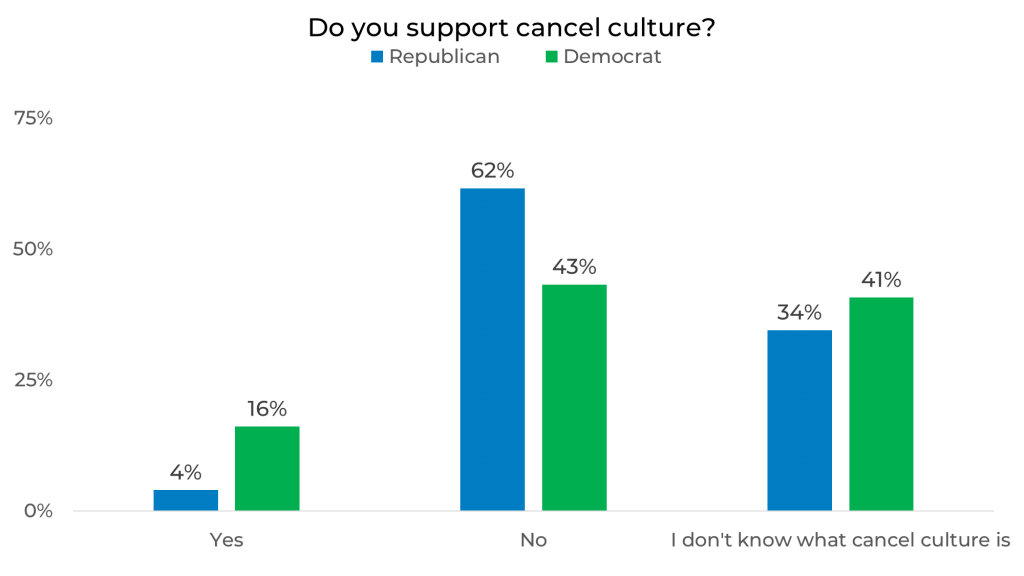
Income
When it comes to income, the higher your income, the more likely you are to not support cancel culture. The lower your income, the more likely you are to not know what cancel culture is. Support across all income levels is less than 15%.
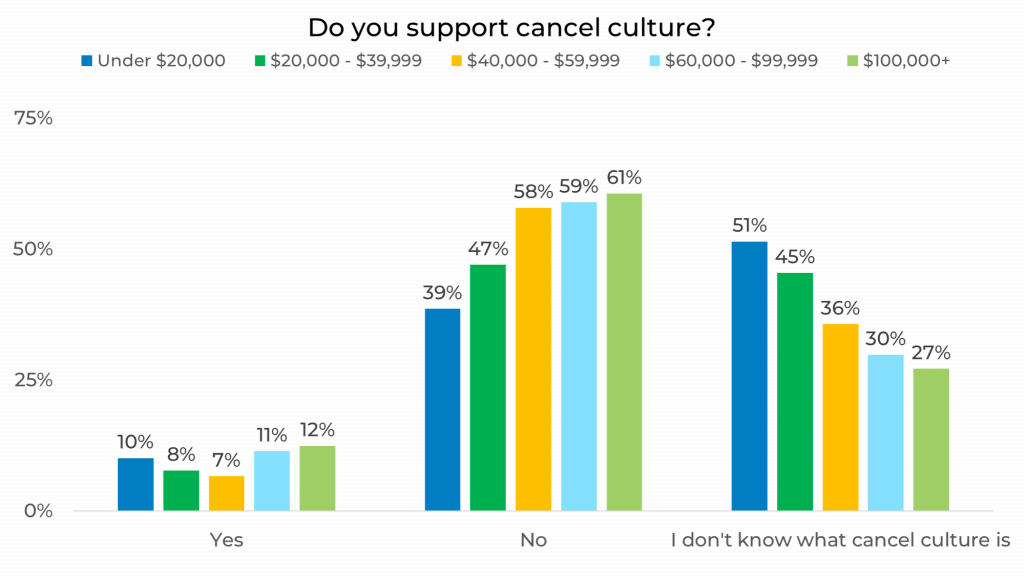
Panel
When looking at support for cancel culture by panel, we see the biggest difference between Panels C and H. Again, support for cancel culture across all panels is less than 15%. There is up to a 14% difference among panels in those who do not support cancel culture and up to a 15% difference in panels of respondents who do not know what cancel culture is.
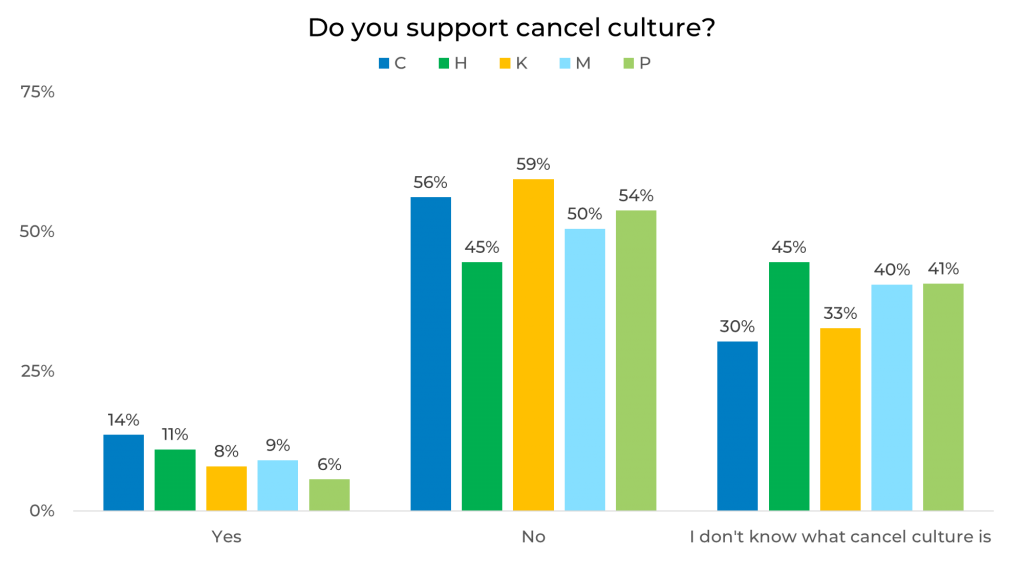
As we see in this blog, perception and awareness of cancel culture varies largely by both demographic and panel. That is why strategic sample blending is a best practice to ensure your data is safe from sample bias. To learn more about hot topics like this and how panels are different, download your copy of The Sample Landscape: 2022 Edition.




